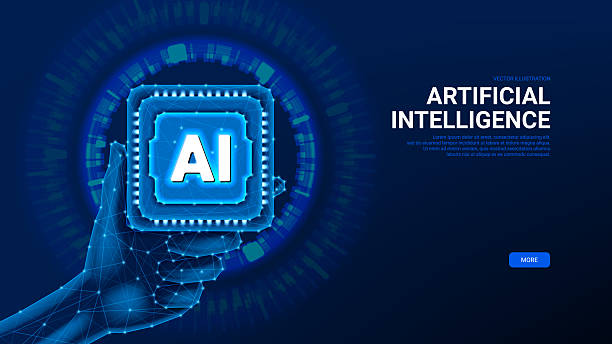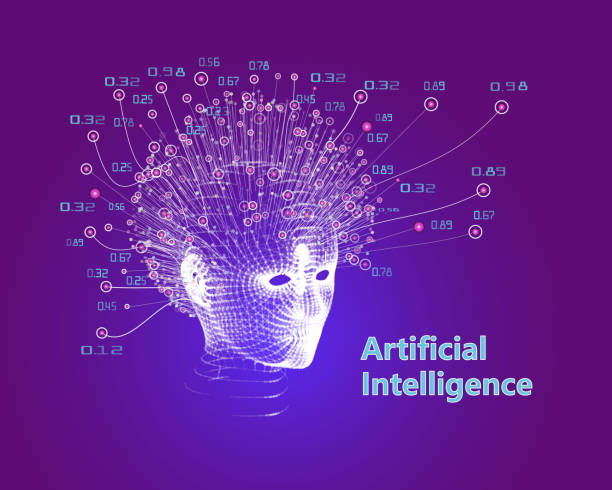What is an AI Assistant and What are its Uses?

What is an AI Assistant and What are its Uses?
#AI_Assistant is a computer program designed using #Artificial_Intelligence (AI) to help users perform various tasks.
These tasks can include answering questions, providing information, performing calculations, writing text, translating languages, and many other things.
AI assistants typically use Natural Language Processing NLP to understand user input and generate appropriate responses.
They can interact with users in text, voice, or even a combination of both.
Some AI assistants are embedded in various devices such as smartphones, tablets, smart speakers, and computers, while others are accessible online through websites or applications.
Uses of AI Assistant:
- Answering Questions: AI assistants can answer users’ questions on various topics.
- Providing Information: They can provide information about news, weather, traffic, events, and other topics.
- Performing Calculations: AI assistants can perform mathematical calculations, unit conversions, and other calculations.
- Writing Text: They can write various texts such as emails, articles, and reports.
- Translating Languages: AI assistants can translate texts from one language to another.
- Managing Tasks: They can manage users’ tasks, such as setting reminders, creating to-do lists, and scheduling meetings.
- Controlling Devices: AI assistants can control smart home devices, such as lights, thermostats, and locks.
In short, an AI assistant is a powerful tool that can help users perform various tasks and make their lives easier.
With the increasing advancements in the field of artificial intelligence, it is expected that AI assistants will play a more important role in our lives in the future.
Did you know that a poorly designed online store can drive away up to 70% of your potential customers? Resaweb transforms your sales with professional and user-friendly e-commerce website designs.
✅ Significant increase in sales and revenue
✅ Fully optimized for search engines and mobile devices
⚡ [Get a free consultation from Resaweb]
Types of AI Assistants and Their Features
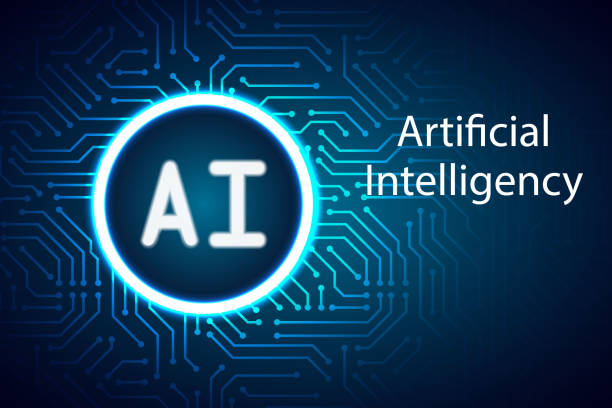
Types of AI Assistants and Their Features
AI assistants can be categorized based on platform, type of interaction, and level of intelligence.
Here are some of the common types of AI assistants:
Based on Platform:
- Mobile-Based AI Assistants: These assistants are embedded in smartphones and tablets and can interact with users through voice or text commands.
Examples of this type of assistant include Apple’s Siri Siri and Google Assistant Google Assistant. - Smart Speaker-Based AI Assistants: These assistants are embedded in smart speakers and can interact with users through voice commands.
Examples of this type of assistant include Amazon Alexa and Google Home. - Web-Based AI Assistants: These assistants are accessible through websites or applications and can interact with users through text commands.
Examples of this type of assistant include chatbots and virtual assistants.
Based on Type of Interaction:
- Voice AI Assistants: These assistants interact with users through voice commands and can answer users’ questions, provide information, and control smart devices.
- Text AI Assistants: These assistants interact with users through text commands and can answer users’ questions, provide information, and write various texts.
- Hybrid AI Assistants: These assistants use a combination of voice and text commands to interact with users.
Based on Level of Intelligence:
- Limited AI Assistants: These assistants can only perform limited tasks and have limited knowledge.
- Advanced AI Assistants: These assistants can perform more complex tasks and have more extensive knowledge.
- Self-Learning AI Assistants: These assistants can improve their performance by learning from their data and experiences.
The features of AI assistants vary depending on their type and level of intelligence.
However, some common features include:
- Natural Language Processing (NLP): Ability to understand and process human language.
- Machine Learning (ML): Ability to learn from data and experiences.
- Answering Questions: Ability to answer users’ questions on various topics.
- Providing Information: Ability to provide information about news, weather, traffic, events, and other topics.
- Performing Calculations: Ability to perform mathematical calculations, unit conversions, and other calculations.
- Writing Text: Ability to write various texts such as emails, articles, and reports.
- Translating Languages: Ability to translate texts from one language to another.
- Managing Tasks: Ability to manage users’ tasks, such as setting reminders, creating to-do lists, and scheduling meetings.
- Controlling Devices: Ability to control smart home devices, such as lights, thermostats, and locks.
How to Choose a Suitable AI Assistant?
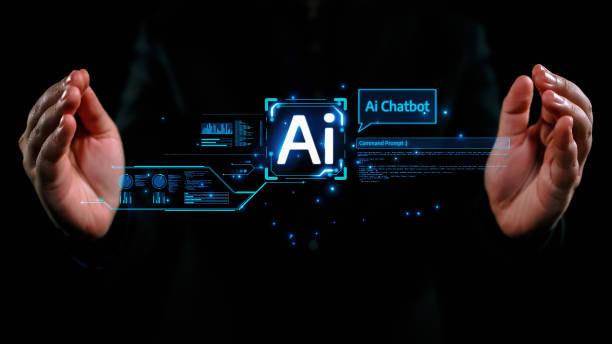
How to Choose a Suitable AI Assistant?
Choosing a suitable AI assistant depends on your needs and preferences.
Before choosing an AI assistant, you should answer these questions:
- What tasks do you want the AI assistant to do for you?
- Which platform do you prefer (mobile phone, smart speaker, web)?
- What type of interaction do you prefer (voice, text, hybrid)?
- What level of intelligence do you need?
- What is your budget?
After answering these questions, you can start reviewing different AI assistants.
Here are a few tips for choosing a suitable AI assistant:
- Features and Capabilities: Make sure the AI assistant you choose has the features and capabilities that are important to you.
- Compatibility: Make sure the AI assistant you choose is compatible with the devices and services you use.
- Privacy and Security: Make sure the AI assistant you choose protects your privacy and security.
- Price: The price of AI assistants can vary.
Consider your budget before choosing an AI assistant. - User Reviews: Reviews from other users can help you choose a suitable AI assistant.
Comparison of Some Popular AI Assistants:
Here is a comparison table of some popular AI assistants:
.styled-table thead tr {
background-color: #009879;
color: #ffffff;
text-align: left;
}
.styled-table th,
.styled-table td {
padding: 12px 15px;
}
.styled-table tbody tr {
border-bottom: 1px solid #dddddd;
}
.styled-table tbody tr:nth-of-type(even) {
background-color: #f3f3f3;
}
.styled-table tbody tr:last-of-type {
border-bottom: 2px solid #009879;
}
.styled-table tbody tr.active-row {
font-weight: bold;
color: #009879;
}
| AI Assistant | Platform | Features | Price |
|---|---|---|---|
| Siri | Mobile Phone (iOS) | Answering Questions, Providing Information, Managing Tasks, Controlling Devices | Free (Included with Apple Devices) |
| Google Assistant | Mobile Phone (Android), Smart Speaker, Web | Answering Questions, Providing Information, Managing Tasks, Controlling Devices | Free |
| Amazon Alexa | Smart Speaker | Answering Questions, Providing Information, Playing Music, Controlling Devices | Price of Amazon Smart Speakers |
Ultimately, the best way to choose a suitable AI assistant is to try a few different options and see which one works best for you.
Using an AI assistant can help you manage your time and do your tasks faster and easier.
AI Assistant is always available to you like a friend and companion.
Advantages and Disadvantages of Using AI Assistant

Advantages and Disadvantages of Using AI Assistant
Using an AI assistant has several advantages and disadvantages, which we will discuss in this section:
Advantages:
- Increased Productivity: AI assistants can perform repetitive and time-consuming tasks quickly and automatically, which can help increase users’ productivity.
- Easy Access to Information: AI assistants can quickly access and provide the information users need.
- Customization: Many AI assistants are customizable and can be adjusted based on users’ needs and preferences.
- 24/7 Availability: AI assistants are available 24 hours a day, 7 days a week, and can help users at any time.
- Stress Reduction: By performing repetitive tasks and managing time, AI assistants can help reduce users’ stress.
Disadvantages:
- Privacy: AI assistants need to collect user information to perform their tasks.
This can create concerns about user privacy. - Security: AI assistants can be vulnerable to cyberattacks and compromise user information.
- Trust: Some users may not trust AI assistants and prefer to perform their tasks manually.
- Cost: Some AI assistants are not free, and users have to pay to use them.
- Dependence: Overuse of AI assistants can lead to user dependence on them and reduce their skills.
In general, using an AI Assistant can have many benefits, but users should also be aware of its drawbacks and take the necessary measures to protect their privacy and security.
AI Assistant is a powerful tool that can make our lives easier, but we must use it correctly.
Are you tired of losing customers due to poorly designed e-commerce website? With Resaweb, solve this problem forever!
✅ Increase sales and visitor-to-customer conversion rate
✅ Smooth and attractive user experience for your customers⚡ Get a free consultation
What will the future of AI Assistant be?
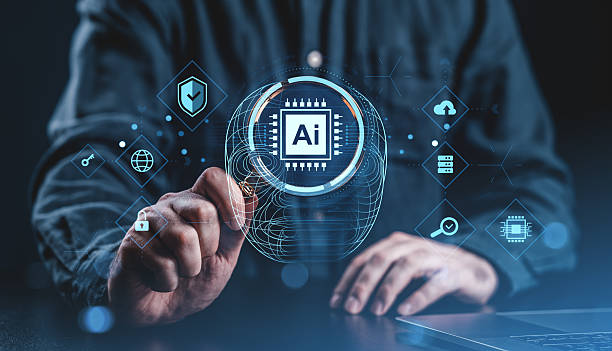
What will the future of AI Assistant be?
The future of AI Assistant looks very bright and promising.
With the increasing advancements in the field of artificial intelligence and machine learning, it is expected that AI assistants will play a more important role in our lives in the future.
Here are some of the key trends that are shaping the future of AI Assistant:
- Becoming Smarter: AI assistants will become smarter and more capable in the future.
They will be able to perform more complex tasks and interact with users more accurately. - More Personalization: AI assistants will be able to provide a customized experience based on each user’s personal needs and preferences.
- Integration with More Devices: AI assistants will be integrated with more devices in the future, including cars, appliances, and wearable devices.
- Support for More Languages: AI assistants will support more languages in the future and serve more users around the world.
- Greater Security: With increasing concerns about privacy and security, it is expected that AI assistants will be more secure in the future and protect user information.
In particular, AI assistants are expected to play a more important role in the following areas in the future:
- Healthcare: AI assistants can help doctors diagnose diseases, help patients manage their medications, and provide remote care services.
- Education: AI assistants can help students learn, do their homework, and provide personalized feedback.
- Business: AI assistants can help companies improve customer service, increase sales, and reduce costs.
- Entertainment: AI assistants can help users find movies, music, and games, and provide a more entertaining experience.
However, there are also challenges in the way of developing AI assistants.
One of these challenges is ensuring that AI assistants operate fairly and without discrimination.
Another challenge is ensuring that AI assistants respect user privacy and protect their information.
AI Assistant is constantly evolving and a future full of new possibilities awaits it.
AI Assistant and Privacy

AI Assistant and Privacy
Protecting privacy is one of the most important concerns in the digital age, especially when we use technologies such as AI Assistant.
These assistants collect a lot of information from users to provide services, including voice data, text, and personal information.
Therefore, it is very important to know how to protect our privacy when using AI Assistant.
Potential Privacy Risks:
- Data Collection: AI assistants collect a lot of data from users, which can include voice conversations, text messages, search history, and personal information.
- Data Sharing: Some companies may share data collected from users with other companies.
- Use of Data for Advertising: Data collected from users may be used to display targeted advertising.
- Hacking: Data stored by companies may be hacked and accessed by unauthorized persons.
Privacy Solutions:
- Privacy Settings: Review your AI assistant’s privacy settings and make sure you only share the data you are willing to share.
- Disabling the Microphone: Disable your AI assistant’s microphone when not needed.
- Clearing History: Regularly clear your activity history in the AI assistant.
- Using a Strong Password: Use a strong password for your account and change it regularly.
- Reviewing the Privacy Policy: Review the privacy policy before using an AI assistant.
- Using AI Assistants with Strong Privacy: Some AI assistants have a greater focus on protecting user privacy.
By following these tips, you can protect your privacy when using AI assistants.
Remember that protecting privacy is a personal responsibility and you should take the necessary measures to protect your information.
AI Assistant should not cost you your privacy.
Comparing AI Assistant with Humans

Comparing AI Assistant with Humans
AI Assistant and humans are both capable of performing various tasks, but there are fundamental differences between them.
In this section, we will compare the two:
Advantages of AI Assistant:
- Speed: AI assistants can perform tasks much faster than humans.
- Accuracy: AI assistants can perform tasks with greater accuracy than humans.
- 24/7 Availability: AI assistants are available 24 hours a day, 7 days a week.
- Scalability: AI assistants can be easily scaled and support a large number of users simultaneously.
- Cost: Using AI assistants may be cheaper than hiring humans in some cases.
Advantages of Humans:
- Creativity: Humans are capable of creativity and innovation, while AI assistants typically operate based on existing data.
- Emotional Intelligence: Humans have emotional intelligence and can understand and empathize with the feelings of others.
- Judgment: Humans are able to judge and make decisions in complex situations, while AI assistants typically operate based on algorithms.
- Human Communication: Humans are able to make human connections and build relationships, while AI assistants typically lack this ability.
- Flexibility: Humans are able to adapt to new situations and changes, while AI assistants may have limitations in this area.
Comparison Table:
| Feature | AI Assistant | Human |
|---|---|---|
| Speed | High | Low |
| Accuracy | High | Medium |
| Accessibility | 24/7 | Limited |
| Creativity | Low | High |
| Emotional Intelligence | Low | High |
| Judgment | Limited | High |
In general, both AI Assistant and humans have their strengths and weaknesses.
In many cases, the best solution is to use a combination of both.
For example, a company can use AI assistants to perform repetitive and time-consuming tasks, while using humans to perform creative and complex tasks.
AI Assistant is a powerful tool, but it cannot replace humans.
Challenges in Developing AI Assistant

Challenges in Developing AI Assistant
The development of AI Assistant faces several challenges, which we will discuss in this section:
- Accuracy and Reliability: AI assistants must be accurate and reliable.
Mistakes and errors can lead to serious problems. - Privacy and Security: AI assistants collect a lot of data from users, so protecting the privacy and security of this data is very important.
- Discrimination: AI assistants must operate fairly and without discrimination.
The algorithms used to train AI assistants may contain unintended biases. - Transparency: The performance of AI assistants must be transparent and explainable.
Users should know how AI assistants make decisions. - Accountability: In the event of a mistake or error, it must be clear who is responsible.
- Natural Language Understanding: Accurate and correct understanding of natural language is one of the biggest challenges in developing AI assistants.
- Emotional Intelligence: AI assistants must be able to understand and respond to user emotions.
- Continuous Learning: AI assistants must continuously learn and improve their performance.
- Scalability: AI assistants must be able to support a large number of users simultaneously.
- Cost: Developing and maintaining AI assistants can be expensive.
To overcome these challenges, more research and innovation are needed in the field of artificial intelligence, machine learning, and natural language processing.
Also, there is a need to enact laws and regulations that regulate the use of AI assistants and protect user rights.
AI Assistant is a powerful technology, but it must be developed responsibly and ethically.
Are you lagging behind in competition with large online stores?
Resaweb professional e-commerce website design, it will make your business online and increase your market share!
✅ Increase brand credibility and customer trust
✅ Easy shopping experience leads to more sales
⚡ To get free website design advice, act now!
The impact of AI Assistant on jobs
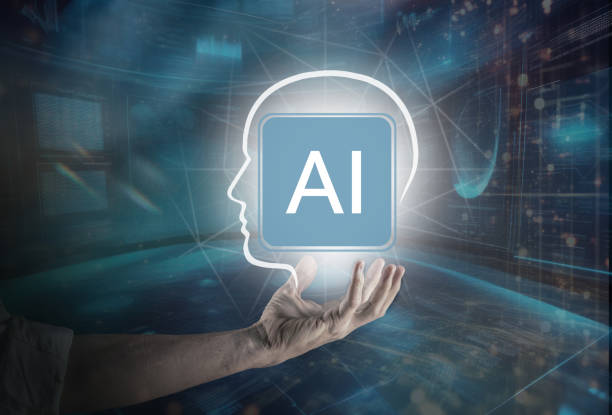
The impact of AI Assistant on jobs
AI Assistant can have a significant impact on various jobs.
This effect can be positive or negative and depends on various factors.
In this section, we will examine the impact of AI Assistant on different jobs:
Positive effects:
- Increased Productivity: AI assistants can perform repetitive and time-consuming tasks quickly and automatically, which can help increase employee productivity.
- Error Reduction: AI assistants can perform tasks with greater accuracy than humans, which can help reduce errors and improve service quality.
- Improve Customer Service: AI assistants can answer customer questions, solve their problems, and provide support services.
- Creating New Opportunities: Developing and maintaining AI assistants can create new job opportunities.
- Cost Reduction: Using AI assistants may be cheaper than hiring humans in some cases.
Negative Effects:
- Job Replacement: AI assistants can replace some jobs, especially those that involve repetitive and routine tasks.
- Need for New Skills: Employees need to learn new skills to work with AI assistants and perform tasks that cannot be automated.
- Increasing Inequality: People who do not have the skills to work with AI assistants may fall behind in the labor market.
- Stress and Anxiety: Some employees may be stressed and anxious about AI assistants replacing them.
To reduce the negative impacts of AI Assistant on jobs, there is a need for training and retraining of employees, creating new job opportunities, and providing social support.
Also, there is a need to enact policies that protect the rights of employees against automatic job replacement.
AI Assistant is a powerful tool, but it should be used responsibly and with consideration of its impact on society.
Important tips for using AI Assistant
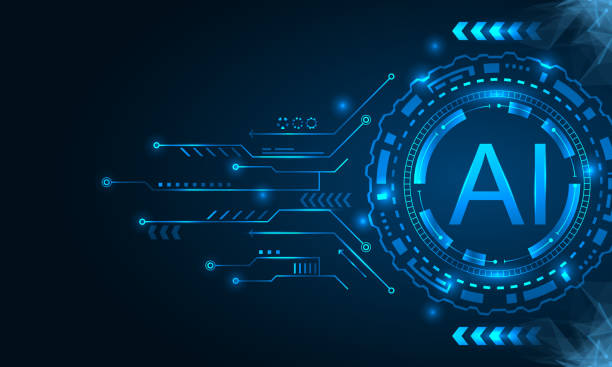
Important tips for using AI Assistant
Using AI Assistant can be very useful and efficient, but for optimal use, you should pay attention to the following points:
- Defining Goals: Before using AI Assistant, you should define your goals.
What tasks do you want to assign to it? What do you expect from it? - Choosing the Right Assistant: Different AI assistants have different features and capabilities.
Choose an assistant that is compatible with your needs and goals. - Training: Before using AI Assistant, you must learn how to work with it.
Read the instructions and tutorials provided by the manufacturer. - Correct Interaction: In order for AI Assistant to respond correctly to your requests, you must interact with it correctly.
Use clear and concise language and state your commands accurately. - Reviewing Results: After using AI Assistant, review the results and make sure they meet your expectations.
If there is an error, report it. - Protecting Privacy: Pay attention to your privacy and avoid providing sensitive information to your AI Assistant.
Check the privacy settings and make sure your information is properly protected. - Updating: Update your AI Assistant regularly to take advantage of the latest features and improvements.
- Responsible Use: Use AI Assistant responsibly and avoid engaging in illegal or unethical activities.
- Openness to Criticism: Pay attention to the criticisms and suggestions of other users and try to improve the performance of your AI Assistant.
- Awareness of Limitations: AI Assistant is a tool and has limitations.
Do not expect it to be able to do everything.
By following these tips, you can use AI Assistant effectively and safely and enjoy its benefits.
AI Assistant can help you manage your time, increase your productivity, and get things done faster and easier.
Frequently Asked Questions
| Row | Question | Answer |
|---|---|---|
| 1 | What is an AI Assistant? | A software application that performs tasks or services for a person based on oral or written commands. |
| 2 | Name a few examples of AI Assistants? | Siri, Google Assistant, Alexa and Cortana. |
| 3 | How do AI Assistants work? | They use natural language processing (NLP), machine learning, and artificial intelligence to understand user input and provide an answer or perform a task. |
| 4 | What can an AI Assistant do? | Answer questions, set reminders, play music, send messages, manage calendars and control smart devices. |
| 5 | What are the benefits of using an AI Assistant? | Increased productivity, fast access to information, assistance to people with specific disabilities, and simplification of daily tasks. |
| 6 | Are AI Assistant answers always accurate? | No, they may sometimes make mistakes or provide outdated information, especially on complex or sensitive topics. |
| 7 | What are the privacy concerns about AI Assistants? | Recording and storing audio/text data, the possibility of unauthorized access, and using data for advertising purposes. |
| 8 | What will the future of AI Assistants be like? | Becoming smarter, more integrated with devices and platforms, a deeper understanding of emotions, and the ability to perform more complex tasks. |
| 9 | Do AI Assistants learn from users? | Yes, through machine learning and data collection from previous interactions to improve performance and personalize responses. |
| 10 | What is the difference between an AI Assistant and a Chatbot? | AI Assistant has the ability to perform more diverse tasks beyond conversation and is often integrated with an operating system or hardware, while a chatbot is designed more for conversation or answering specific questions. |
And other services of Rasa Web Advertising Agency in the field of advertising
Intelligent Conversion Rate Optimization: Transform click-through rates with the help of marketing automation.
Smart Linking: An innovative platform to improve customer acquisition by optimizing key pages.
Smart UI/UX: A dedicated service to grow sales based on the use of real data.
Smart SEO: Transform online growth with the help of Google Ads management.
Intelligent Custom Software: A combination of creativity and technology to analyze customer behavior by optimizing key pages.
And over hundreds of other services in the field of internet advertising, advertising consulting and organizational solutions
Internet Advertising | Advertising Strategy | Advertisement Reporting
Resources
Getting to know AI Assistant in Iran Web cms
,What is a smart assistant? What do we know about its applications?
,What is the smart assistant Siri?
,What is a mobile smart assistant?
? With “Resaweb Afrin”, take your business to the peak of success. We at Resaweb Afrin Digital Marketing Agency are experts in providing comprehensive digital solutions to help you on your path to growth. From multilingual website design and search engine optimization to social media management and targeted advertising campaigns, we use our knowledge and experience to help you have a strong online presence and attract more audiences. With us, the future of your business is brighter.
📍 Tehran, Mirdamad Street, next to the Central Bank, South Kazerun Alley, Ramin Alley No. 6
📱 0912

